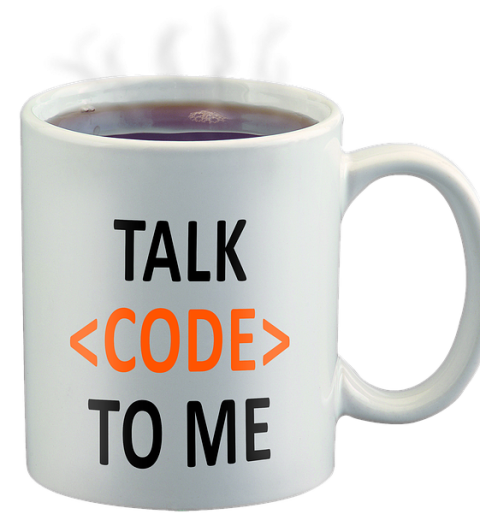In today’s competitive tech landscape, landing a software engineering role requires more than just technical skill; it demands preparation for the critical questions that interviewers ask to assess candidates’ problem-solving abilities, cultural fit, and long-term potential. To help engineers navigate this process, Who Needs Engineers conducted extensive research to identify the top 20 questions companies commonly ask software engineering candidates. We’ve also included sample answers to help candidates understand the context and expectations behind each question.
1. Tell me about a challenging project you worked on. What was your role, and how did you handle it?
- Sample Answer: In my last role, I worked on a project to optimize the data processing pipeline for a large e-commerce platform. I led a team of three engineers and focused on refactoring legacy code. We faced issues with scalability, so I implemented a new caching strategy and rewrote critical functions, reducing processing time by 40%.
2. How do you stay current with new programming languages and frameworks?
- Sample Answer: I dedicate a few hours each week to learning, whether through online courses, reading documentation, or participating in developer communities. For example, I recently took a course on React’s new features, which helped me apply its hooks API in my current projects.
3. Explain a time you had to debug a complex issue. What was your approach?
- Sample Answer: I once faced an issue where an application was crashing intermittently. I used logging and traced the error back to a memory leak caused by an unclosed database connection. After identifying the issue, I fixed it by implementing a cleanup function to close connections properly.
4. What are your favorite development tools, and why?
- Sample Answer: I enjoy using Visual Studio Code for its customization and extensive extension marketplace. Git is also essential for version control, and Docker is invaluable for managing development environments. These tools boost my productivity and streamline collaboration with my team.
5. How do you prioritize tasks when working on multiple projects?
- Sample Answer: I use project management tools like Jira to track tasks and prioritize based on deadlines and business impact. I follow the Agile methodology, breaking down tasks into sprints and focusing on high-impact items first.
6. Describe your experience with [specific technology relevant to the role].
- Sample Answer: I have three years of experience working with Node.js, where I built scalable APIs and services. In my last role, I used Node.js to develop a real-time notification system, optimizing for speed and reliability.
7. How do you ensure code quality?
- Sample Answer: I follow coding standards, conduct code reviews, and write comprehensive tests. I also advocate for using static analysis tools and automated testing pipelines to catch errors early in development.
8. How do you handle disagreements within a team?
- Sample Answer: I believe in open communication and actively listening to each person’s perspective. In one case, I worked with a teammate who disagreed on a technical approach. I proposed that we each present our solutions, listing pros and cons, and ultimately agreed on a solution that best served the project’s goals.
9. What’s your approach to optimizing software performance?
- Sample Answer: I typically start with profiling tools to identify bottlenecks. For instance, in a past project, I noticed frequent database calls slowing down performance. I implemented caching and improved query efficiency, leading to a 30% speed boost.
10. Can you walk me through a time you failed on a project? How did you handle it?
- Sample Answer: Early in my career, I underestimated the complexity of integrating a third-party API. The deadline was missed, but I took accountability, updated my project timeline, and completed it with support from my team. I learned to better assess external dependencies and plan for contingencies.
11. How do you approach learning a new codebase?
- Sample Answer: I start by reviewing the documentation, if available, and identifying the core modules. I often use diagrams or visual aids to map out dependencies, which helps me quickly understand the structure and interactions within the code.
12. What’s your preferred programming language, and why?
- Sample Answer: I prefer Python for its readability and versatility. It’s powerful for backend development, data processing, and scripting. Python’s large ecosystem and extensive libraries allow me to develop solutions faster and maintain code quality.
13. Describe a time when you went above and beyond for a project.
- Sample Answer: I was part of a team delivering an app with a tight deadline. When a critical bug was identified last minute, I volunteered to work through the weekend to fix it, ensuring the app launched on time without compromising quality.
14. How do you handle high-pressure situations?
- Sample Answer: I focus on staying calm and breaking tasks into manageable steps. In a recent project, I faced tight deadlines due to unexpected changes in requirements. I stayed focused, delegated tasks, and communicated regularly with the team, ensuring timely delivery.
15. How would you explain a complex technical concept to a non-technical colleague?
- Sample Answer: I use analogies and simple language. For instance, I once explained data caching as similar to placing frequently used items on a desk instead of going to the storage room each time, which helped my colleagues grasp its purpose easily.
16. What’s your experience working in Agile environments?
- Sample Answer: I’ve worked in Agile environments for most of my career, participating in daily stand-ups, sprint planning, and retrospectives. Agile helps me stay focused and responsive to changes, which I find essential in fast-paced projects.
17. What do you enjoy most about software engineering?
- Sample Answer: I enjoy problem-solving and the satisfaction of creating solutions that people can use. There’s a rewarding sense of accomplishment in translating abstract requirements into tangible, functional code.
18. How do you deal with ambiguous requirements?
- Sample Answer: I clarify any uncertainties by asking questions and collaborating with stakeholders to ensure alignment on goals. If details are unclear, I propose solutions and confirm them with stakeholders before moving forward.
19. What are your career goals in software engineering?
- Sample Answer: I aim to become a technical lead, developing both my technical and leadership skills. I enjoy mentoring junior engineers and working on high-impact projects that align with my interests in scalable, high-performance systems.
20. Why do you want to work with us?
- Sample Answer: I’m inspired by [Company’s] commitment to innovation and its focus on developing solutions in the [specific industry]. I believe my skills in [mention relevant skills or experience] align well with your team’s goals, and I’m excited to contribute to such impactful projects.
These questions, gathered from industry insights and real-life hiring experiences, reflect the attributes most sought after by hiring managers today. By preparing thoroughly, engineers can confidently demonstrate their strengths and stand out in any interview setting.
For more resources and guidance on engineering recruitment, keep following our insights at Who Needs Engineers.



